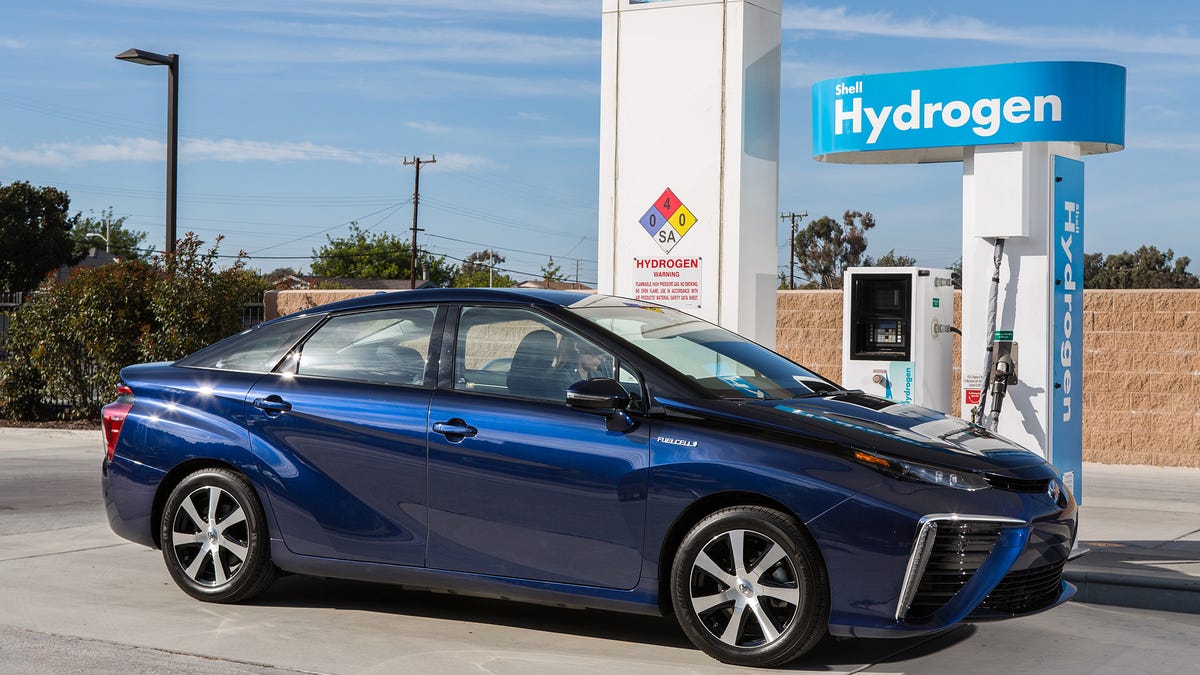Hydrogen fuel could be as cheap as gas in 5 years, study finds
That not to say the infrastructure or fuel-cell technology will be ready for primetime by then, but it's promising.
As the automotive industry looks away from the tried-and-true internal-combustion engine, two paths appear. One is a future of electric cars and oodles of charging stations. The second, seemingly less likely path, is the road to hydrogen fuel-cell vehicles.
While EVs are definitely the favorite, hydrogen fuel cells have their own advantages, such as much longer ranges. And if a study from the California Energy Commission (PDF) holds weight, hydrogen fuel to power fuel-cell vehicles could be about the same price as gasoline in just five years.
The report, published last week, details a development plan to create renewable hydrogen fuel plants. In the end, the commission believes demand and its eventual cost could be worth today's investments. In 2025, a kilogram of hydrogen (equal to 0.26 gallons of gas) could be dispensed for $6-$8.50 and would "meet an interim target based on fuel economy-adjusted price parity with gasoline." Meaning, yes, that's a lot more expensive than a quarter gallon of gas, but your car will go much further. The commission notes this price is also before any California subsidies for low-carbon fuels, which would push the price even lower.
It's worth noting the study looked at cost parity based on vehicle efficiency. In other words, there's no way to know if automakers would even have affordable vehicles running a hydrogen fuel cell powertrain by 2025. Judging by where automakers stand today on the technology, it's a safe bet that won't be the case. Automakers often equate cost parity for EVs and the internal-combustion engine via battery cost, not efficiency.
Many problems remain for hydrogen fuel that we're not yet close to solving. Storage remains tricky and for those who think it's tough to find an EV charging station, try and find a hydrogen fueling station outside of California and Hawaii.
Even if hydrogen doesn't power the cars of tomorrow, the CEC thinks it could be a viable alternative for other sectors. Power generation was an area discussed and it could shape other industrial processes. Back in the transportation sector, hydrogen could make more sense for large commercial trucks or city buses, too.


